
ACTA ICHTHYOLOGICA ET PISCATORIA
Scope & Guideline
Fostering collaboration in aquatic research.
Introduction
Aims and Scopes
- Taxonomy and Systematics:
The journal emphasizes research on the classification and identification of fish species, including descriptions of new species and taxonomic revisions based on morphological and genetic analyses. - Ecological Studies:
Research on the ecology of fish populations, including community structure, feeding habits, and habitat preferences, is a core focus, contributing to the understanding of fish-environment interactions. - Conservation and Management:
Papers addressing the conservation status of fish species and the management of fisheries resources are prevalent, highlighting the importance of sustainable practices in aquatic environments. - Invasive Species Research:
The journal includes studies on invasive fish species, their impacts on native ecosystems, and strategies for management and control. - Aquaculture and Fisheries Science:
Research related to aquaculture practices, including breeding, feeding, and growth performance of economically significant fish species, is also featured, supporting the development of sustainable aquaculture.
Trending and Emerging
- Genetic Diversity and Phylogeography:
There is an increasing focus on the genetic diversity of fish populations and phylogeographic studies, which help in understanding evolutionary relationships and the impacts of environmental changes on fish genetics. - Impact of Climate Change:
Research addressing the effects of climate change on fish habitats, distribution, and reproductive behaviors is trending, as scientists seek to understand how climate shifts affect aquatic ecosystems. - Ecotoxicology and Environmental Stressors:
Studies exploring the effects of pollutants and other environmental stressors on fish health and behavior are emerging, reflecting a growing concern for aquatic health and ecosystem integrity. - Community Dynamics and Fish Interactions:
Emerging themes include the dynamics of fish communities and interspecies interactions, focusing on how these relationships influence biodiversity and ecosystem stability. - Innovative Aquaculture Techniques:
There is a rising interest in innovative aquaculture practices, particularly those that enhance sustainability and reduce environmental impacts, showcasing the journal's commitment to practical applications in fisheries science.
Declining or Waning
- Traditional Morphometrics:
Research centered solely on traditional morphometric analyses of fish has decreased, as more integrative approaches combining genetics and ecology are favored. - General Biodiversity Assessments:
Papers that focus broadly on biodiversity assessments without specific ecological or conservation applications have become less common, as the journal emphasizes more targeted research with practical implications. - Historical Fish Populations Studies:
There appears to be a waning interest in studies solely focused on historical population dynamics without linking them to current ecological or management issues, as contemporary relevance is increasingly prioritized.
Similar Journals
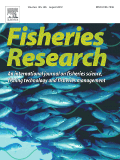
FISHERIES RESEARCH
Advancing aquatic science for sustainable futures.Fisheries Research, published by Elsevier, is a leading international journal dedicated to the advancement and dissemination of research in the field of aquatic science. With an ISSN of 0165-7836 and E-ISSN 1872-6763, this influential journal has been pivotal in shaping fisheries management and conservation strategies since its inception in 1981. As a distinguished publication ranked in the Q1 category for Aquatic Science in 2023, it holds a prestigious position, reflected in its Scopus ranking of 73/247 in Agricultural and Biological Sciences. Fisher fisheries research encompasses a diverse array of topics such as fish population dynamics, ecosystem management, and sustainable practices, making it an essential resource for researchers, professionals, and students alike. Although it currently does not offer Open Access, the journal remains a crucial platform for disseminating high-quality research and fostering dialogue within the aquatic science community. With its address at Radarweg 29, 1043 NX Amsterdam, Netherlands, Fisheries Research continues to contribute significantly to the global discourse on fisheries science and management.
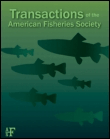
TRANSACTIONS OF THE AMERICAN FISHERIES SOCIETY
Navigating the challenges of fisheries management with expertise.TRANSACTIONS OF THE AMERICAN FISHERIES SOCIETY, published by Wiley, is a leading journal dedicated to the field of fisheries science and aquatic ecology, with a rich history dating back to its inception in 1872. As an esteemed publication within the realms of Aquatic Science and Ecology, Evolution, Behavior, and Systematics, it currently holds a Q2 quartile ranking, demonstrating its significance and influence in these disciplines. The journal is not open access, which enables a curated peer-review process while ensuring high-quality research dissemination. The journal serves as a vital platform for scholars and practitioners alike, providing essential insights into the management and conservation of aquatic resources. Its commitment to addressing contemporary challenges faced in fisheries and aquatic environments makes it indispensable for researchers, professionals, and students seeking to contribute to this dynamic field.
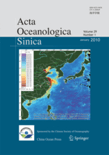
ACTA OCEANOLOGICA SINICA
Diving Deep into Marine and Freshwater StudiesACTA OCEANOLOGICA SINICA, published by SPRINGER, stands as a significant voice in the fields of Aquatic Science and Oceanography, contributing vital research and insights since its inception in 1985. With an ISSN of 0253-505X and an E-ISSN of 1869-1099, this journal maintains a strong international focus, delivering high-quality peer-reviewed articles that address pressing marine and freshwater environmental issues. Although it operates under a subscription model, its Q3 ranking in both Aquatic Science and Oceanography demonstrates its solid standing within Scopus, placing it in the 48th and 44th percentiles respectively. The journal aims to foster knowledge exchange and collaboration among researchers, professionals, and students by providing a platform for innovative studies and comprehensive reviews. With a dedicated editorial board and a commitment to advancing scientific understanding, ACTA OCEANOLOGICA SINICA serves as an essential resource for anyone engaged in the study of oceanographic phenomena and aquatic ecosystems.
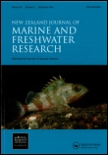
NEW ZEALAND JOURNAL OF MARINE AND FRESHWATER RESEARCH
Fostering Insights into Biodiversity and ConservationNEW ZEALAND JOURNAL OF MARINE AND FRESHWATER RESEARCH, published by Taylor & Francis Ltd, stands as a distinguished platform for the dissemination of innovative research in the realms of aquatic science and ecology. With an ISSN of 0028-8330 and E-ISSN 1175-8805, this journal has been curating significant scientific contributions since its inception in 1967, continuing through to 2024. Recognized in the Q2 category across multiple relevant fields—including Aquatic Science, Ecology, and Water Science—this journal ranks notably in Scopus, with a 74th percentile for Ecology, Evolution, Behavior and Systematics, highlighting its impact and relevance within the scientific community. Though not an open-access publication, its rigorous peer-reviewed articles offer insights that resonate with researchers, professionals, and students who are passionate about advancing our understanding of freshwater and marine ecosystems. By fostering a collaborative space for ecological and environmental inquiries, the NEW ZEALAND JOURNAL OF MARINE AND FRESHWATER RESEARCH is essential for those aiming to contribute to the vital conversations around biodiversity, conservation, and sustainable management of aquatic resources.

Journal of Fisheries
Advancing aquatic knowledge for a sustainable future.The Journal of Fisheries, an esteemed publication by BDFISH, serves as a pivotal platform for disseminating cutting-edge research in the field of fisheries science. With its commitment to Open Access since 2013, the journal ensures that vital knowledge is accessible to researchers, professionals, and students worldwide, promoting widespread dissemination of fishery-related discoveries. By featuring high-quality peer-reviewed articles, the Journal of Fisheries aims to advance the understanding of aquatic ecosystems, sustainable fishing practices, and the broader implications of fisheries on biodiversity and food security. Located at the Dept of Fisheries, University of Rajshahi, Bangladesh, this journal plays a crucial role in fostering academic dialogue and collaboration, contributing significantly to the growth and development of fisheries research globally.

CRUSTACEANA
Connecting Researchers to Aquatic Science InnovationsCRUSTACEANA, published by BRILL, stands as a pivotal resource in the field of Animal Science and Zoology as well as Aquatic Science, with a focus on advancing the understanding of crustacean biology, ecology, and evolution. With an ISSN of 0011-216X and an E-ISSN of 1568-5403, this journal has been curating significant research since its inception in 1960 and continues to contribute scholarly knowledge up to 2024. Although it operates without an Open Access option, CRUSTACEANA holds a commendable Q3 ranking in both the Animal Science and Aquatic Science categories for 2023. Furthermore, it consistently provides insightful articles that enrich the academic dialogue surrounding aquatic ecosystems, making it a valuable platform for researchers, professionals, and students alike.

Ichthyology and Herpetology
Connecting Scholars in the Study of Aquatic SpeciesIchthyology and Herpetology is a premier academic journal dedicated to the study of fish and amphibians, providing a dynamic platform for researchers and scholars within the fields of animal science and aquatic biology. Published by the American Society of Ichthyologists and Herpetologists, this journal has rapidly established its reputation, securing a Q1 ranking in prestigious categories such as Animal Science and Zoology, Aquatic Science, and Ecology, Evolution, Behavior and Systematics as of 2023. Offering both traditional and open access options, Ichthyology and Herpetology fosters the dissemination of cutting-edge research, reviews, and methodological advancements that are essential in understanding the biodiversity and conservation of aquatic and semi-aquatic species. Furthermore, with an impressive Scopus ranking placing it in the top-tier of its fields, this journal serves as a critical resource for professionals, academics, and students alike, supporting the ongoing advancement of knowledge in these vital ecological sectors.
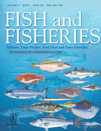
FISH AND FISHERIES
Exploring the depths of fish biology and fisheries management.FISH AND FISHERIES is a premier academic journal published by Wiley, dedicated to advancing knowledge in the fields of aquatic science, ecology, and oceanography. With an impressive impact reflected in its 2023 categorization in the Q1 quartile across multiple disciplines—including Aquatic Science and Management, Monitoring, Policy and Law—it serves as an essential resource for researchers, professionals, and students alike. This journal includes rigorous, peer-reviewed articles that address the multifaceted aspects of fish biology, conservation, and sustainable fisheries management. The journal's Scopus rankings further validate its significance, with top positions in Earth and Planetary Sciences, and its commitment to fostering scientific dialogue in an era where the oceans and aquatic ecosystems face unprecedented challenges. Despite not being an Open Access journal, FISH AND FISHERIES remains a vital platform for innovative research that informs policy and drives stewardship of fish populations and their habitats.

FISHERIES SCIENCE
Fostering collaboration for a sustainable marine environment.Fisheries Science, published by Springer Japan KK, is a renowned journal in the field of aquatic science, effectively bridging the gap between scientific research and practical application in fisheries management. With an ISSN of 0919-9268 and an E-ISSN of 1444-2906, this journal serves as a vital resource for researchers, professionals, and students interested in advancing their knowledge and understanding of aquatic ecosystems and fishery practices. Operating within a competitive landscape, Fisheries Science has achieved a respectable ranking in Scopus, placing 96th out of 247 journals in the Agricultural and Biological Sciences > Aquatic Science category, showcasing its integral role in contributing to this dynamic field. The journal encompasses a wide range of topics from sustainable development to conservation strategies, aiming to foster collaborative research and innovative solutions to the challenges facing fisheries today. While not an open-access journal, Fisheries Science remains a key publication for those dedicated to marine science and the sustainable management of aquatic resources, with a historical footprint extending from 1994 to 2024.

ISRAELI JOURNAL OF AQUACULTURE-BAMIDGEH
Innovating practices in aquaculture for global impact.Welcome to the Israeli Journal of Aquaculture-Bamidgeh, published by AquacultureHub Inc, a pivotal platform dedicated to advancing the field of aquaculture studies since its inception in 1988. With a focus on innovative research and practical applications within the realms of Agronomy and Aquatic Sciences, this journal has established a reputation for disseminating high-quality findings that contribute to sustainable practices in aquatic farming. The journal, although classified in the Q3 and Q4 quartiles for its respective categories, offers valuable insights for researchers and practitioners alike, allowing them to stay abreast of developments in aquaculture challenges and solutions. While it's currently not an Open Access journal, the Israeli Journal of Aquaculture-Bamidgeh is committed to providing a thorough avenue for scholarly exchange and fostering collaborations across the global aquaculture community. Explore impactful studies and the latest trends to enhance your knowledge and research in this vital sector.